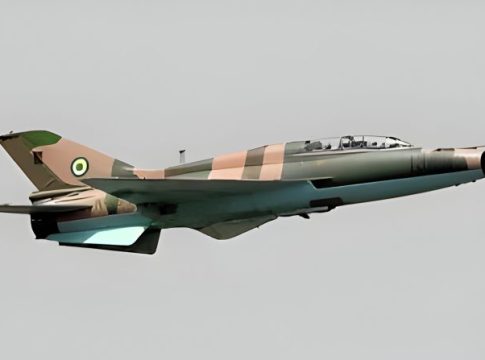In a significant move to enhance its operational capabilities against terrorists and armed gangs devastating northwest Nigeria, the Nigerian Air Force (NAF) has announced plans to acquire 50 new aircraft. This ambitious expansion, disclosed by Air Marshal Hassan Bala Abubakar, the Chief of Air Staff, during the inauguration of new military infrastructures in Katsina state, marks a pivotal stride in the nation’s defense strategy.
The newly announced fleet expansion will encompass a diverse array of aircraft, including 12 AH-1 attack helicopters, designed for precision and durability in combat scenarios; 24 M-346 combat planes, known for their versatility and advanced training capabilities; 12 AW109 multipurpose helicopters, offering logistical and tactical support; and two Casa 295 transport aircraft, enhancing the Air Force’s mobility and operational reach. These acquisitions, scheduled for delivery by next year, though detailed cost information remains undisclosed, symbolize Nigeria’s determined response to the escalating security challenges within its borders.
READ MORE: Outbreak Of Cholera In Nigeria Claims 30 Lives
This strategic reinforcement is poised to elevate the military’s efficacy in counter-terrorism operations across the northwest and central regions, areas that have been engulfed by insurgent violence, resulting in significant civilian casualties and widespread destabilization.
The announcement comes at a crucial time, especially in light of recent partnerships between state governments and the military to fortify security measures, as disclosed by Kaduna state Governor Uba Sani. Plans to establish three new forward-operating bases underline a concerted effort to address the security vacuum in regions most affected by insurgent activities.
However, the NAF’s operational track record has not been without controversy. A tragic incident in December, involving erroneous airstrikes that led to civilian fatalities in a Kaduna community, has placed the Air Force under scrutiny. Such incidents underscore the imperative need for precision, accountability, and strategic oversight in military operations, especially in conflict zones where the risk to civilian lives is amplified.
As Nigeria embarks on this significant expansion of its aerial warfare capabilities, the focus invariably shifts towards the implications of this move on the broader counter-terrorism strategy. The addition of 50 new aircraft represents not just an upgrade in military hardware but a crucial step towards restoring peace and security to the beleaguered regions of northwest Nigeria.




